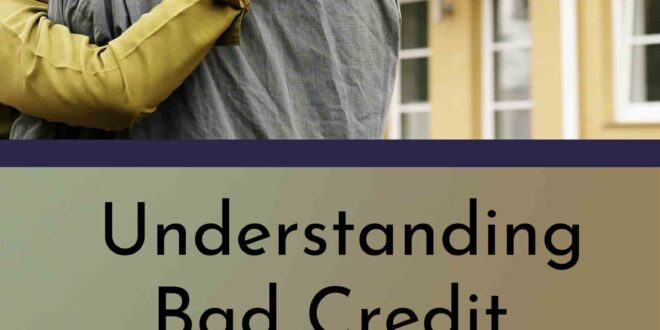A bad credit mortgage refers to a home loan offered to individuals with poor credit scores or a history of financial difficulties.
It typically comes with higher interest rates, stricter terms, and more requirements compared to traditional mortgages.
While bad credit mortgages can provide an opportunity for individuals with low credit scores to purchase a home, it’s important to understand the implications and risks associated with them.
Here’s a breakdown of bad credit mortgages and some tips to avoid getting into that situation:
- What is a bad credit mortgage?
- Tips to avoid bad credit mortgages:
What is a bad credit mortgage?
A bad credit mortgage is designed for borrowers who have a low credit score, a history of late payments, defaults, or other negative credit events.
Lenders offering bad credit mortgages take on higher risks by lending to individuals with poor credit.
As a result, they charge higher interest rates and may require larger down payments or additional collateral.
Read Also: 10 Ways For Buying BTC From Anywhere In The World.
Risks of bad credit mortgages
Higher interest rates: Bad credit mortgages typically come with higher interest rates compared to conventional mortgages. This means you’ll end up paying more in interest over the life of the loan.
Stricter terms
Lenders may impose stricter terms and conditions, such as shorter loan terms or larger down payments, to mitigate their risks.
Limited options
You may have fewer options when it comes to choosing a lender or the type of mortgage you can obtain.
Financial strain
The higher monthly mortgage payments can strain your budget and make it more challenging to meet other financial obligations.
Tips to avoid bad credit mortgages
- Improve your credit score: Work on improving your credit score by paying your bills on time, reducing outstanding debts, and correcting any errors on your credit report. A higher credit score will increase your chances of qualifying for a traditional mortgage with better terms.
- Save for a larger down payment: Lenders may be more willing to work with borrowers who can provide a larger down payment. Saving for a substantial down payment reduces the lender’s risk and improves your chances of securing a mortgage with more favorable terms.
- Establish a stable income and employment history: Lenders want to see a stable income source and employment history. Demonstrating consistent income and job stability can help improve your chances of obtaining a mortgage, even with a lower credit score.
- Explore alternative loan programs: Look into alternative loan programs such as government-backed loans (e.g., FHA loans) or special programs designed for individuals with lower credit scores. These programs may have more flexible requirements and lower interest rates compared to traditional lenders.
- Seek professional advice: Consult with a mortgage professional or credit counselor who can provide guidance on improving your credit and finding suitable mortgage options based on your financial situation.
Remember, it’s crucial to carefully consider the long-term implications of a bad credit mortgage.
If possible, focus on improving your credit score and financial situation to qualify for more favorable loan terms in the future.
Read Also: 12 Ways To Network Like A Boss
 expresslife.net ExpressLife is a Professional technology Platform. Here we will provide you only interesting content, which you will like very much. We're dedicated to providing you the best of technology, with a focus on dependability and Earning Online. We're working to turn our passion for technology into a booming online website. We hope you enjoy our technology as much as we enjoy offering them to you. I will keep posting more important posts on my Website for all of you.
expresslife.net ExpressLife is a Professional technology Platform. Here we will provide you only interesting content, which you will like very much. We're dedicated to providing you the best of technology, with a focus on dependability and Earning Online. We're working to turn our passion for technology into a booming online website. We hope you enjoy our technology as much as we enjoy offering them to you. I will keep posting more important posts on my Website for all of you.






2 comments
Pingback: 10 Important Tools To Incorporate Into Your Digital Marketing Strate
Pingback: List Of The Most Dangerous Jobs In The World